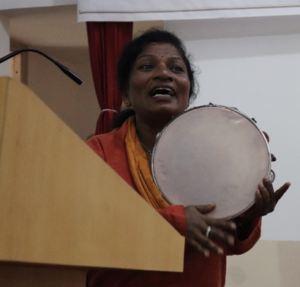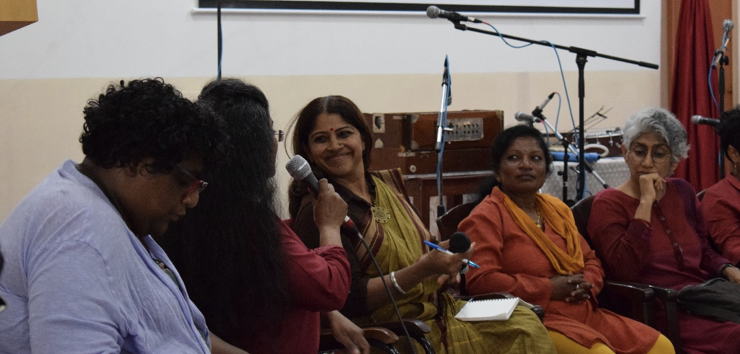DAY 3 : 09 February 2020
SESSION 5: 12.15 – 1.30 pm
Culture & the Arts in Times of Trouble
Art, literature, music and cinema may be the most peaceful, free and lasting expressions of dissent, identity or flux. What does it take to make art in polarised times? What are the inspirations and limitations? Does the artist’s identity matter, and how does it influence the art? Is there fear of repression? When the subject influences the expression, how important is the craft? What are the roles of language and cultural history in the expression? What are the responses within the artist community? How does one make subversive art and balance financial constraints? How can technology be incorporated into the realm of art?
How can journalists cover the subject to represent both the craft and its impact on society? What are the best ways to democratise art and reporting on it?
Moderators: Nadika Nadja and Anna Vetticad
Initiators of the discussion: MD Pallavi & Bindhu Malini (musicians); Arundhati Ghosh, (Executive Director, India Foundation for the Arts); Manjula, Arunodaya Kala Tanda, Mandya (theatre); Deepa Dhanraj (filmmaker); Sana Irshad Mattoo (photographer)

Citing a few recent examples of art that mirrored the present times, Arundhati Ghosh pointed out that they did not receive any support from patrons and organisers. She said many artists have spoken out against various forms of oppression over the years and it is the duty of art funders and sponsors to support such work.
Sana, a photographer from Kashmir, recalled the difficulties she faced while taking pictures in the Valley after the abrogation of Section 370 in August 2019. Showing a few samples of her work, Sana spoke about how she managed to save her images from the security forces who asked her to delete them.
Senior filmmaker Deepa Dhanraj highlighted the alternatives enabled by technology to present different viewpoints. As examples, she mentioned initiatives like Chal Chitra Abhiyan, a film and media collective based in Uttar Pradesh, and Dalit Camera, a YouTube Channel which tells stories through the perspective of the Dalit community in India.
Manjula, a theatre artiste from Mandya, had to fight poverty, caste oppression, and patriarchy to venture into a domain traditionally reserved for men – street theatre. She faced many challenges from male artistes and violence from society but today she is an art entrepreneur managing a troupe of women artists.
Singer MD Pallavi ruminated on how the traditional notions about gender and social conditioning influence audiences, who as a result want her to present a certain look and don particular types of attire during a concert.

The meeting culminated on a high note, with Pallavi and Bindhu Malini leading the group in singing Faiz Ahmed Faiz’s anthem of resistance, Hum dekhenge in Hindi as well as in Kannada (based on the translation by poet Mamta Sagar).
The community singing was a fitting finale for the 2020 NWMI national meeting considering that all participants and resource persons were presented with a souvenir mug that declared: “Hum Dekhenge (aur bolenge, likhenge, dikhayenge, sunayenge…).

As customary, the NWMI issued a statement at the end of the 15th national meeting, which is available here.


